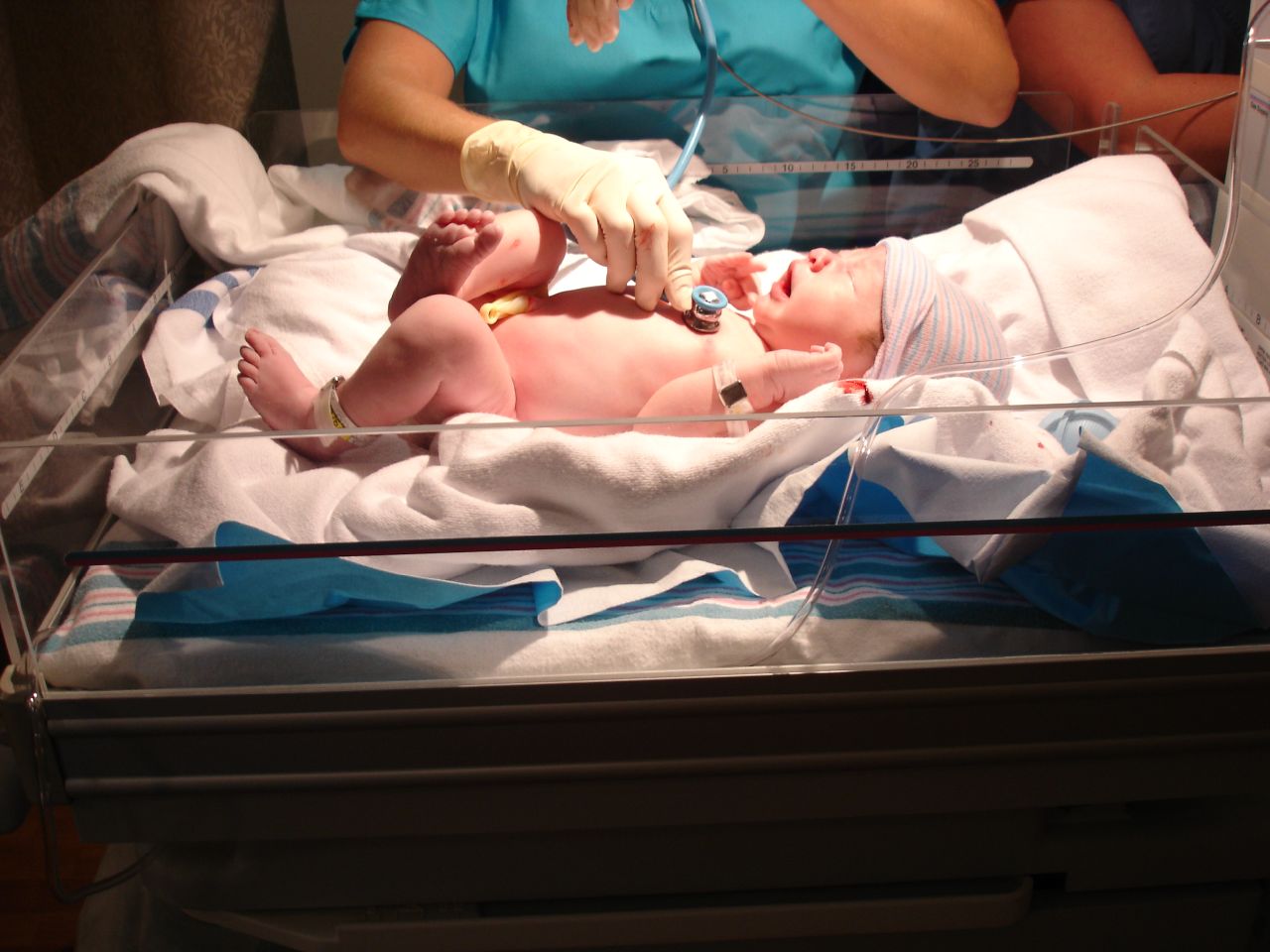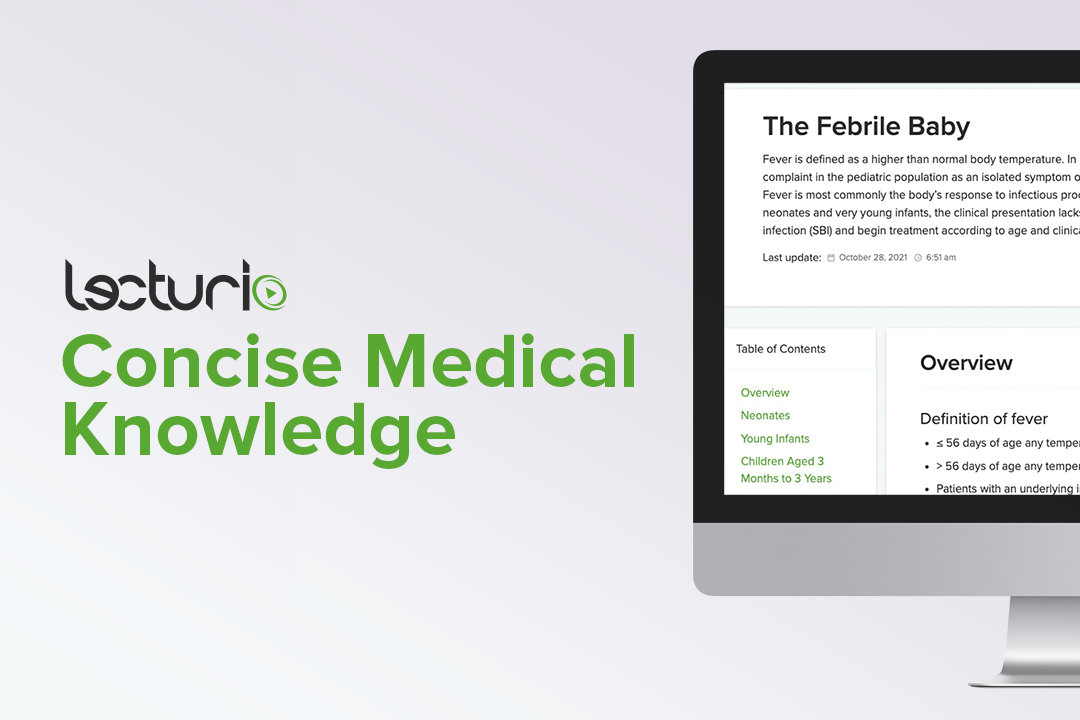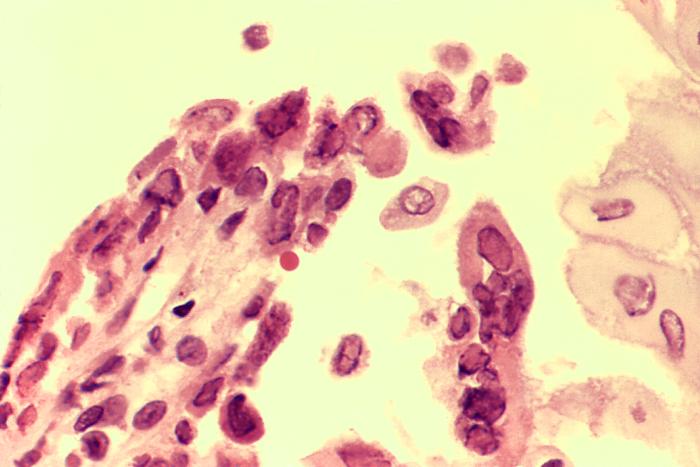Playlist
Show Playlist
Hide Playlist
The Febrile Baby: Herpes Simplex Virus (HSV) Disease in the Neonate
-
Slides Febrile Infant.pdf
-
Download Lecture Overview
00:00 Let's look at HSV very quickly as a side point. Direct passage of herpes simplex virus occurs from a mother to a baby and that's almost entirely during the mother's first outbreak of disease. In the majority of these cases, the mother is unaware that she has the disease. This can present in babies in 3 major types of illness. Skin-eye-mouth disease where the illness is limited to expression of virus on the skin, in the eyes, or around the mouth or meningitis where it's now gotten into the meninges and this is very dangerous or around the brain they may also get an encephalitis or it could be disseminated and they have multiple organ systems involved, from liver involvement to pneumonitis to what have you. So, HSV disease in the neonate is important because although it's very very rare and in fact most of the time doesn't necessarily present with fever but rather presents with hypothermia or seizure or profound irritability, it can present in the febrile infant. The reason why we have to know about it is because it has a very negative outcome although it's very rare. So, skin-eye-mouth disease, just limited to the skin, is 100% curable with acyclovir but if we don't treat it it may progress to more significant illness. So 62% will have a normal outcome with no therapy but 40% will have an abnormal outcome. 01:36 Among patients who receive acyclovir, there is no risk of death, these kids do great but if they get no therapy in that 38% or about 40% of cases, it may progress to more significant disease. 01:50 Let's talk about these more significant diseases. Meningitis with acyclovir, only one-third will end up normal. Brain damage and deafness is common. With no therapy, death or abnormal outcome is essentially ubiquitous. Again, with patients who get acyclovir, death is only in 6% but look at this. Among patients who get no therapy, half will die. So we have to pick this illness up and there's a fear that we may miss it in these febrile infants. In disseminated disease, 83% will end up normal and with no therapy it would be very rare for them to end up normal. Again, a significant portion of those patients die. Disseminated disease tends to be early in infancy and these children are very sick. When do I worry about HSV in a newborn? There are certain presentations in a neonate where you might increase your concern. In most febrile illnesses, this is not a concern and in many centers they will not routinely screen for HSV in the well-appearing febrile neonate but there are some times when you should worry. First is the age. Typically, these children with more significant forms of disease are ages 7 to 28 days. Under 7 days, they may have disseminated disease, those children are almost never well appearing or just skin-eye-mouth disease but skin-eye-mouth disease is something you see with your eyes, you see vesicles grouped on an erythematous base. If a patient is irritable or having seizures, that is HSV and we need to worry about that or very well might be. Hypothermia is probably more common in HSV disease than hyperthermia and so in a cold baby you might ramp up your concern about HSV. 03:48 The last point is a clinical pearl which I really want to emphasize. Remember, this is in a mother who has a history of new disease during pregnancy. If mom has a history prior to delivery of the baby of herpes is actually much less likely that the child has HSV disease. So ironically, a history of herpes is protective against the child now having the disease. Okay, if we suspect HSV, what test do we get? This is a little bit easier. We're going to get an HSV PCR that is the best test for disseminated disease. 04:30 We will send a PCR of the eye conjunctivae, nose, mouth and rectum to check for skin disease. 04:37 This can all be done with a single swab, obviously if you swab in that top-down order, and not the other way. 04:44 If a patient was worried about particular HSV, meningitis, or encephalitis, we should get an HSV PCR of the CSF. That's 90% sensitive which means that 1 in 10 patients will have a negative PCR and still have meningitis. Sometimes an MRI will show areas in the temporal lobe where they have microhemorrhages in the parenchyma but keep in mind a bloody tap does not mean your patient is at risk for HSV. That's a myth. These patients do not typically have bloody taps anymore than anyone else does. Lastly, they may have bumped LFTs so it's not an unreasonable idea to check the LFTs because if they're high we're going to ramp up our concern about disseminated HSV. What's critical though is that you get the cultures before starting the acyclovir because very rapidly those cultures will become falsely negative. 05:39 If they have meningitis or disseminated disease, typically they need 3 weeks of IV acyclovir but then in particular we will treat them with oral acyclovir for at least the full 6 months. This reduces recurrent outbreaks on the skin but more importantly seems to directly improve their cognitive outcomes, so it's really important.
About the Lecture
The lecture The Febrile Baby: Herpes Simplex Virus (HSV) Disease in the Neonate by Brian Alverson, MD is from the course Pediatric Infectious Diseases.
Included Quiz Questions
Which of the following findings would be most concerning for possible HSV infection?
- Hypothermia
- Maternal history of chronic genital herpes
- Low birth weight
- Lack of immunizations
- Lack of prenatal care
What is the route of Herpes simplex infection in a neonate?
- Mother to child
- Droplets
- Unsterile delivery equipment
- Waterborne infection
- Exposure in NICU from other neonates
Which of the following is the test of choice in identifying patients with disseminated herpes simplex infection?
- HSV PCR of blood
- HSV PCR of CSF
- Viral culture
- Liver function test
- HSV PCR of urine
When is the treatment with acyclovir typically initiated in a neonate with suspected HSV?
- After taking a culture sample for HSV.
- After HSV PCR of CSF is positive.
- After the HSV PCR of urine is positive.
- After liver function test result abnormal.
Customer reviews
5,0 of 5 stars
| 5 Stars |
|
1 |
| 4 Stars |
|
0 |
| 3 Stars |
|
0 |
| 2 Stars |
|
0 |
| 1 Star |
|
0 |
Great lecture! I learned tons. It shows that the instructor masters the topic and is able to give a clear and easy-to-understand picture. I now feel much more confident for these situations and more able to integrate the local guidelines now that I understand better the general concepts. Thanks!






